By Uran Kalakulla
Part Twenty-Six
Nazism and Communism
Memorie.al / Nazism lasted 12 years, while Stalinism lasted twice as long. In addition to many common characteristics, there are many differences between them. The hypocrisy and demagogy of Stalinism was of a more subtle nature, which was not based on a program that was openly barbaric, like Hitler’s, but on a socialist, progressive, scientific and popular ideology, in the eyes of the workers; an ideology that was like a convenient and comfortable curtain to lie to the working class, to lull the sharpness of intellectuals and rivals in the struggle for power.
One of the consequences of this peculiarity of Stalinism is that the entire Soviet people, its best, most capable, hardworking and honest representatives, suffered the most terrible blow. At least 10-15 million Soviets lost their lives in the torture chambers of the KGB, martyred or executed, as well as in the camps of the Gulag and others like them, camps where it was forbidden to correspond (in fact they were prototypes of the Nazi death camps); in the mines in the ice of Norilsk and Vorkuta, where people died from cold, from hunger, from crushing work in countless construction sites, in the exploitation of forests, in the opening of canals and during transportation in lead-lined wagons, or in the flooded barns of the death ships.
Continued from the previous issue
Mazllëm Shishmani was from the Gjakova district. His fellow countrymen said that he was from a good and honorable tribe of that area, but had killed his wife, after suspecting her of cheating on him. To escape legal punishment, he had jumped across the border. But those who said so added that Mazllëm had begun (before the unfortunate act) to show signs of psychological imbalance. In Albania, they had put him (like the others) in an internment camp and from there straight to the Rubik prison camp.
Mazllëm was tall in stature and with a face that seemed somewhat disfigured, where, from his often inappropriate words, from those small daily laughs, as well as from a special smile, typical of a madman, he clearly showed his imbalance which, in my opinion, his madness must have had its source in syphilis. I say this because I remembered many explanations from a book on syphilis, by Dr. Yusufati, that I had read a long time ago, when I was a teacher.
But the wonder was that his stupidity, during the entire time I had to stay in that wicked prison camp, never showed any signs of aggression. On the contrary. Mazllëmi not only did not mess with anyone, whoever he was, even the biggest peevish, but, on the contrary, he would get between those who were being beaten, to separate them, to reconcile them, telling them that we are brothers, we are all Albanians and our only enemy is the shkjau!
Hey, what do you say to that? Even in his mental imbalance, Mazllëmi had an unwavering sense of patriotism. When he saw a convict who had been tied up by the guards for work reasons, for example, he had not done the norm, Mazllëmi would go up to them and beg them to untie him, because he would do the norm. Once, he even went before the commander himself and begged for such a thing, telling him that he would do thirty norms and not one, and then asking him to put him in the most difficult sector, in the most difficult work. And this Basyret fulfilled his wish, putting him in the concrete joint, where the soul would come out of his ass.
The poor deserted Mazllëm was almost skin and bones. Even in the cold, he would strip naked from the waist up and would not rest for a minute; both with bags of cement, with a shovel, with handcarts, which, placed in a row, had to run at speed, to transport the concrete from the concrete mixer to the large plinth full of crossed iron bars (I don’t know how many meters deep underground), with hundreds of cubic meters of volume, which had to be done within a day, within a shift. Because back then, the work had started with two shifts, each one often exceeded, not ten, but twelve hours.
And the poor Mazllëm, who could not necessarily be eaten by the young and strong boys, finally gave up. Then he abandoned his work and began to hide in the shadows. But the captors would find him, tie him to a pole. While he screamed from pain and torture, the captors, with the officers and the “commander”, would laugh.
All the convicts loved Mazllëm. In fact, when they could, they would help him: some with tobacco and cigarettes, some with a piece of bread, some with a pot of food. And he thanked people more than anyone. When he was in a mood, he would make a thick and long cigarette the size of a sausage, wrapped in cement paper and smoke it with anxiety. As a rule, he did not have a specific company, or specific friends, but would hang out with anyone. But the beautiful thing is that I have never seen him hang out with bad people, nor even come close to them. Even when they offered him something to eat or a cigarette, he wouldn’t take it. I was amazed at how he managed to distinguish people there. Was it as if he had some kind of sixth sense, a strange intuition in that cloudy consciousness of his?
One of his most selected people, if I may say so, was me. Well, as a rule, I didn’t get too close to him, because I’ve never liked to deal with fools, ever since I was a child, much less to laugh at them, as many people are accustomed to. I’ve always felt a pain, a pity for them. The same goes for Mazllëm. But then he approached me. And pointing to the mountain in front of us (where the church I mentioned before was), he said to me:
– “Do you know, you fool, who is crying?”
– “No, Mazllëm”.
– “There, Obi’s rin”!
– “What is Obi, Mr. Mazllem”? – I asked him in his Kosovar dialect. And he, after looking at me with surprising attention, answered me:
– “Eh, what is Obi, you know! He is the god of the world. He would like to tell the story and burn us here”.
– “Was it God Obi himself, Mazllem”?
– “No, he is bigger, stronger. He is braver than us”!
So this Ob, in Mazllem’s confused mind, must have been some kind of Zeus, who sent lightning from the sky, a pagan God. Is it possible that this Obi of Mazllem was Zoili or the Illyrian Bindi, who who knows how he had been resurrected in his mind? Maybe from some ancient Kosovar legend, which I had never heard of? So, this pagan belief of his almost surprised me, despite my usual skepticism about such things.
Another day, quite suddenly, Mazllëmi came up to me and said, pointing his finger at me and with a “devilish” expression on his face:
-“Heee! What are you! I don’t know what’s wrong with you!
You should have been prefect in Paris! Heee! How ridiculous you are!”
To be honest, I was surprised. I had never heard Mazllëmi address anyone else like that. Why me? Of course, it didn’t feel good or bad. Was this sick man some kind of prophet or magician, in that depth of his unbalanced consciousness? And who knows the human soul to the end, even today? And then I connected the pagan god, with the name Ob of Mazllëmi, with the prophecy of the mythical Çirçia, with the soothsayer Pitita of the temple of Apollo, in Delphi. And I left him, with these thoughts in my head.
After that, it wasn’t long before I, the seventy-year-old myself, was transferred from that cursed prison camp to the one in Elbasan, which was less strict and somewhat more tolerant. And for me, that transfer was also a kind of fate. So I parted with Mazllëmi and never saw him again. And I don’t know how the fate of this man, more unfortunate than the rest of us, went on. Unfortunate, but also special and somewhat strange, with his entire psychic imbalance, because I had the good fortune to know many mentally ill people during my long imprisonment. But I never met anyone like Mazllëmi again!
The beating was an Albanian from Macedonia. He had crossed the border into our country, certainly at great risk (although not as befits Albanians), to escape the Serbian yoke, in the hope that “Mother Albania” would welcome him with open arms and raise him as her son, full of longing and love. But, this Albania at that time was an evil stepmother, a witch who tortured even her own sons, who behaved in a way that was not in line with those she had outside her home, even under the shelter of the enemy.
Thus, Rahimi was also thrown into prison and brought there, to take his soul with manual labor. Rahimi was a scoundrel. But, is there a scoundrel who is not the devil himself, even without any schooling, like Rahimi was? At least Albanian folk tales are filled with such scoundrels, who surpass even Nasruddin himself.
To escape the hard work, Rrahimi had presented himself as a perfect adjuster. The command had trusted him and, in the work facility, he had set up a hut where he adjusted work tools, especially mechanical ones. Once he even wanted to adjust the command wall clock: an old bell clock.
The worst captain of that camp was a stocky, round man from the village of Xibër in the Mati district. They called him Haxhi Xibraku. I have always disliked names with this letter: Max, xanxar, xinxife, Xoxe (Koçi), Xhungashvili, xhandar, xhind, xhungë, xhulli… etc. It seems that the Albanian language itself, with its euphonic inner soul, has almost pronounced “x-ra” “xh-ra” with all its “xh-ra”. Because these two letters, especially the “x”, among other things, reminded me of the crossed bars of the trenches, entwined with barbed wire (also full of “x’s”), which tore at people’s flesh and where death came gnawing away. A macabre sight that makes your flesh shudders.
Thus, Captain Haxhi Xibraku, as if God had not brought him to earth, but the damned devil himself. That, both his name and his soul, had been filled with “x-ra”, meaning crossed iron bars and barbed wire. This peasant, in the uniform of a communist policeman, had found exactly his natural skin, which resembled the skin of a snake: disgusting, covered with fine scales, with a slippery and sticky slime on top, cold as the oil of the dead and, to the point of being disgusting.
On the other hand, since God had abandoned him, the devil, for his part, had not given this fatal Xhike more brains than a hound needs to smell its prey. And, to complete it properly, instead of brains, he had given him a soul as black as pitch, which found pleasure only in doing evil and, watching his victims, endure the sufferings of hell. Thus, ignorant, brainless and soulless, Xhikja was the ideal prototype of the communist policeman, specially designated to deal with political prisoners.
I had the bad luck that, besides this Xhike Xibraku, I had known a couple of other Xhikes, policemen in my camps and prisons, whose last names, for hell’s sake, I can’t remember. Both of them, villains and criminals. Especially that Xhikja from Burrel prison, who, when a prisoner died and we dragged him, wrapped in an old and dirty blanket, that tall dog would bark with pleasure, dragging his leg and saying with all his might: “The others are following him too”! As if the poor dead man and his unfortunate comrades, inside the prison bars, confined in the icy cells, had become the mother of this scoundrel.
Xhike Xhibrak, with that appearance like a wild boar, would follow the prisoners from hole to hole, when they tried to hide somewhere to catch their breath, from great fatigue. He would follow them like a skunk even to the toilet and could not wait to find the opportunity or reason to tie them up with handcuffs; to tie them to a pole with wire, when the depth rose or the July sun burned; to beat them and put them in underground dungeons. And only when he did this, you would see him satisfied and puffed up like a rooster.
Thus, we had found trouble with this kind of Hike. From this trouble, a group of convicts, crying their troubles among themselves, thought of either getting rid of him altogether, or giving him a “lesson” so that he would remember it. One of the comrades said that they should guard him when he was in a secluded place and kill him with a crowbar on the head. The other said that it would be better to throw a blanket over him and beat him peacefully with sticks, as was done to dirty spies. However, to kill him meant that the action and the participants would definitely be discovered and sentenced to death, after torture in the investigatory room. Even if you beat him, it would still happen. Then Rrahim Qerosi, who was in that group, stepped in and said to his friends:
– “We should neither kill him nor beat him. Leave Xhike to me, I’ll fix him up for good. I’ll make him get into trouble, from the commander himself. All of us in that prison camp knew that “commander” Bajrami, among the many atrocities, in addition to insulting him with the dirtiest words, when you confronted him, would give orders to his policemen to tie you up with irons with your hands behind your back and then rush over, grab you by the throat and shake you until you almost left your soul in his hands. In the Civil War, after Mukje, a ballista had wounded him in the left arm.
The wound had healed, but it had left a defect, it seems in the tendons of the arm or, I don’t know what else. So, when he clenched the fists of that hand, like pliers, there was no one to open it again. Because of this, the hand of our glorious “commander”, on the throat of the unfortunate prisoner, turned into a real vice. It was precisely this fatal trick of ours that the evilly scolded Rrahim put into action. And he addressed his comrades:
– “You know that the command has brought me a large wall clock with a bell, to fix it. I will lock myself in my barracks and, when I see that Xhikja is coming near, I will ring the bell. In the meantime, one of you should run to him and “spy” on me, as if I had a radio transmitter and was communicating with the outside world. That’s all I want from you. The others will come later.
The comrades drew lots and the one who got the “luck” went and did the job for good measure, pretending to be very worried. Xhikja didn’t wait a second, but ran to the door of the shack, with his ear pressed to it. The shack master, meanwhile, started loudly, ringing the bell as loud as he could and shouting:
-“Hello, America! Hello, CIA! This is the camp of the enemies of the people, in Rubik, speaking to you! Come and help us! Send a plane to parachute us with food and weapons! Hello, America! Hello, CIA”!
Xhikja wanted that much and ran straight to the “commander”. And this one, who had no more sense than Xhikja, gathered his scoundrels and ran to the shack. One kick in the door and inside.
– “What are you doing, you piece of shit? Where is your radio?”
– “What radio, Commander? I have your watch that I was adjusting the alarm for.”
– “Check it!” – Kucioti ordered. And the officers did not leave the whole uninvestigated. But, apart from the water gourd and the bowl of food, the spoon and the work tools, they found nothing else.
Then the “commander” turned to Xhika furiously:
– “Who are you lying to, you piece of shit”? – and grabbed Xhika by the throat and shook him until his eyes bulged like rabbit balls. Then, he gave the order to take him to the garrison for two weeks, on nothing but bread and water. And, when we saw him again among us, we noticed that he had grown pale and thin, with his cheeks hanging like a beaten dog. He especially looked at Xhika with a frown and threw some kind of scolding at him. But the dog, now he was returning it with courage and sting:
– “Captain Haxhiu, please leave me alone, because if you keep pestering me for nothing, I will complain to the commander and you know what will happen to you then”. And Xhikja would retreat with his lips hanging down, shaking his head.
But not a few days passed and that dog raised its head again. It seems like he put his head firmly in the command cauldron, I don’t know where the hell else, he blushed again and started to brag (for our trouble always), even in a tripled voice. Just kill him, because there was no other way. But was it worth shooting a group of our comrades, for a dog like Xhikja?! / Memorie.al




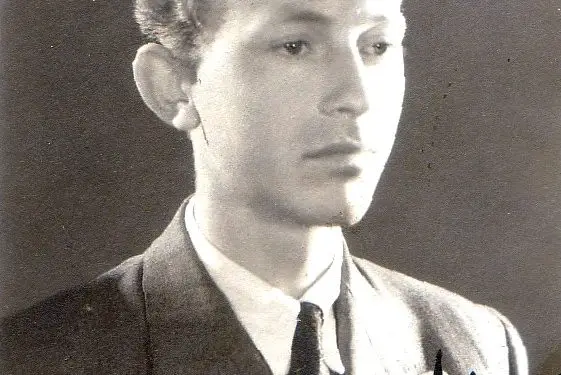
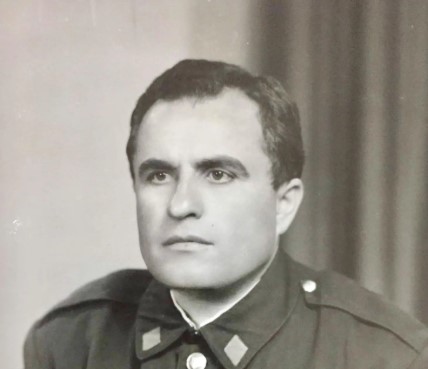
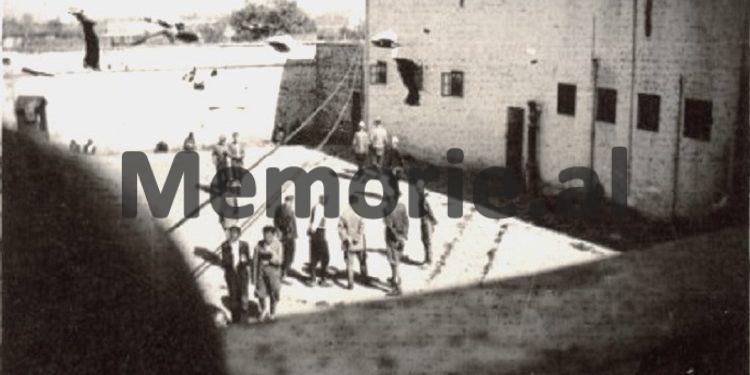
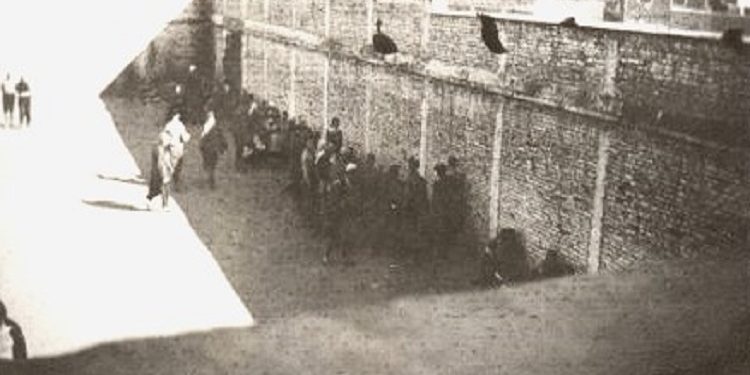

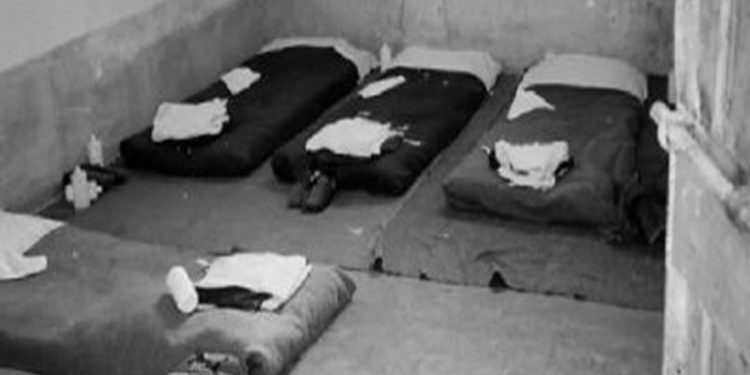
![“The ensemble, led by saxophonist M. Murthi, violinist M. Tare, [with] S. Reka on accordion and piano, [and] saxophonist S. Selmani, were…”/ The unknown history of the “Dajti” orchestra during the communist regime.](https://memorie.al/wp-content/uploads/2026/02/admin-ajax-3-350x250.jpg)
![“In an attempt to rescue one another, 10 workers were poisoned, but besides the brigadier, [another] 6 also died…”/ The secret document of June 11, 1979, is revealed, regarding the deaths of 6 employees at the Metallurgy Plant.](https://memorie.al/wp-content/uploads/2026/02/maxresdefault-350x250.jpg)




